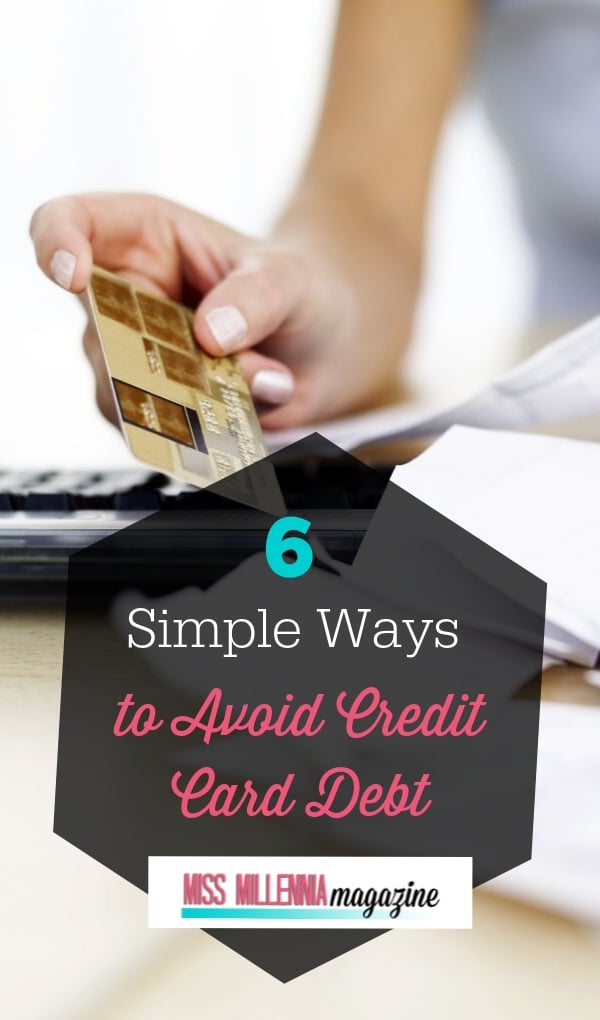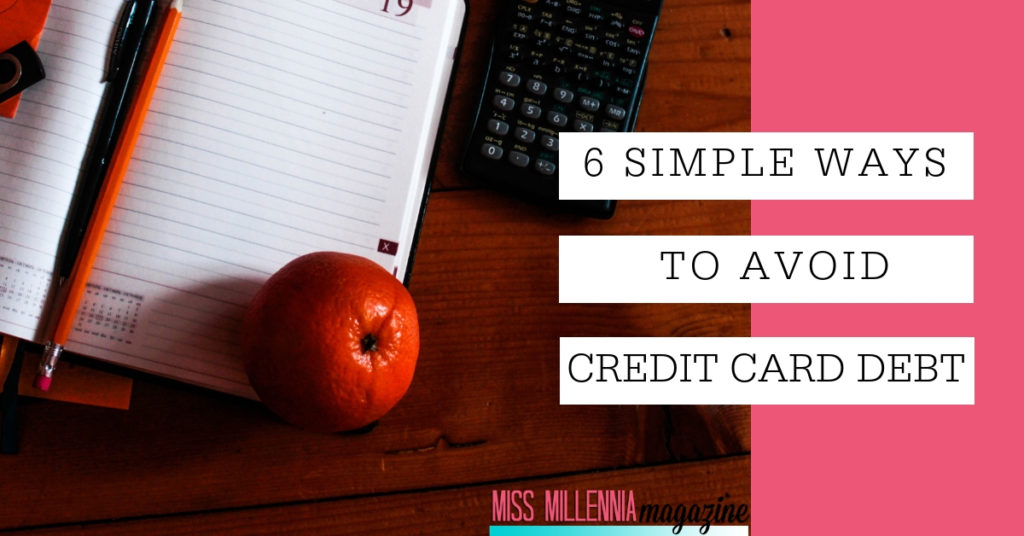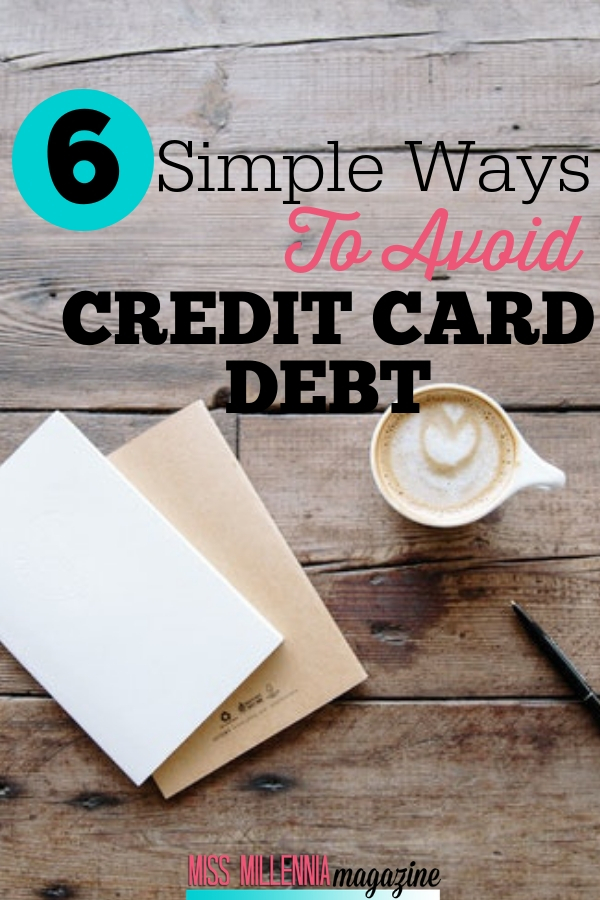6 Simple Ways To Avoid Credit Card Debt
Everyone wants to avoid credit card debt. It sucks to get a bill that you can’t pay back, period! It’s hard to build a credit score when you’re struggling with your finances every month. Luckily there are ways to stop that struggle for good. By carefully selecting the right card for you and keeping track of your spending, you won’t have to fear credit cards anymore.
I used to worry about buying on credit, too. But after doing some research, I discovered there are lots of measures you can take to keep the credit card company’s hands off your hard-earned cash! Read on for my top six ways to avoid credit card debt.
1. Keep Track Of Your Spending
One of the biggest problems that people have with credit cards is they treat them as free money. This doesn’t mean you’re uninformed or wrong! It is easy to go hog wild with spending when you suddenly don’t have a bank balance holding you back.
But that’s the problem.
You still only have as much money as you have in the bank, no more. Having a credit card doesn’t magically make more money appear in there. It just feels like you have more because no one is telling you “no” at the cash register.
To ensure you don’t go into major debt when you get a credit card, keep track of all your expenditures. Think of it like balancing your checkbook, but for your credit card. Every time you make a purchase with your credit card, no matter how small, log it. That way, you won’t risk going over your credit limit or spending more than you can pay back this month.
I know this sounds boring, but taking a few minutes each day to update a spreadsheet is a lot easier than living off of instant ramen when you can’t pay your bills. And it doesn’t have to be fancy! A simple list of numbers with an updated total at the bottom works fine, as long as your math is right.
If you don’t have a type-A personality like me and create Excel spreadsheets for practically everything, there’s another solution: simply pay with cash. The most straightforward way to avoid credit card debt is to use your credit card sparingly. Avoid the temptation of spending more than you can afford by only using cash for things that aren’t bills. You will physically see and feel every dime that you spend going away, which makes the expenditures more “real.”
Take a look at your budget and withdraw just the amount of money you will need for each week or pay period. Then stick to it; no second cash withdrawal allowed! This takes a lot of self-discipline, but it’s a great habit to get into.

2. Always Pay On Time
If you want to save yourself lots of money in the long run, always, ALWAYS pay your credit card bill on time.
This can help you avoid racking up credit card debt beyond the price of the items you bought. Even if you can only afford to make the minimum payment, send it in by the due date. Paying your bill on time each month means you won’t be charged any extra fees. If you pay off the full balance, you won’t get charged any interest either (but more on that later).
Ensuring you pay on time can have a positive impact on your credit score. In fact, it is “the number one factor in determining your credit history” (WiseBread). So if you don’t pay on time not only do you have to pay late fees and extra interest, your credit score will plummet as well.
Do yourself a favor and get a planner or calendar and jot down all your bills’ due dates. It’s a lot easier than trying to remember them all and saves some space in your brain. 2021 Planner - Weekly & Monthly Planner with Calendar Stickers, 5.75" X 8.25", A5 Premium Thicker Paper with Pen Holder, Inner Pocket and 88 Notes Pages
3. Use Debitize
In my first tip, I suggested either keeping track of your spending or strictly using cash to avoid credit card debt. However, there is an easier way to make sure you don’t go over budget. And it requires no work on your part! It’s a little app called Debitize.
Debitize lets you be a real grown-up with a credit card without the fear of overspending. As the name implies, it essentially turns your credit cards into debit cards for you, so you stick to your budget. Here’s a breakdown of how it works:
- First, link your credit card and checking account to the app.
- After you do that, continue to buy things with your credit card like you normally would.
- Every day, Debitize will withdraw the total of what you spent that day from your checking account and hold it in another, separate account that they create for you. This way you can really see and feel that money leaving even though you purchased your stuff on credit.
- Finally, the app uses the separate bank account to pay off your credit card bill for you each month. They do it automatically about a week before your due date, so you never have to remember that deadline again!
Why is this helpful?
There are so many reasons that Debitize is awesome. First of all, by forcing you to stick to the balance you have in your bank account, you won’t overspend, which is a common problem for credit card users. Next, using the app can help boost your credit score. By ensuring that your bill is always paid on time and in full, your score should go up in no time at all.
Debitize can also help you gain a bunch of extra credit card points and rewards. Buying everything on credit racks up your rewards faster without you having to worry about spending beyond your budget.
Sign up for your free Debitize account here!
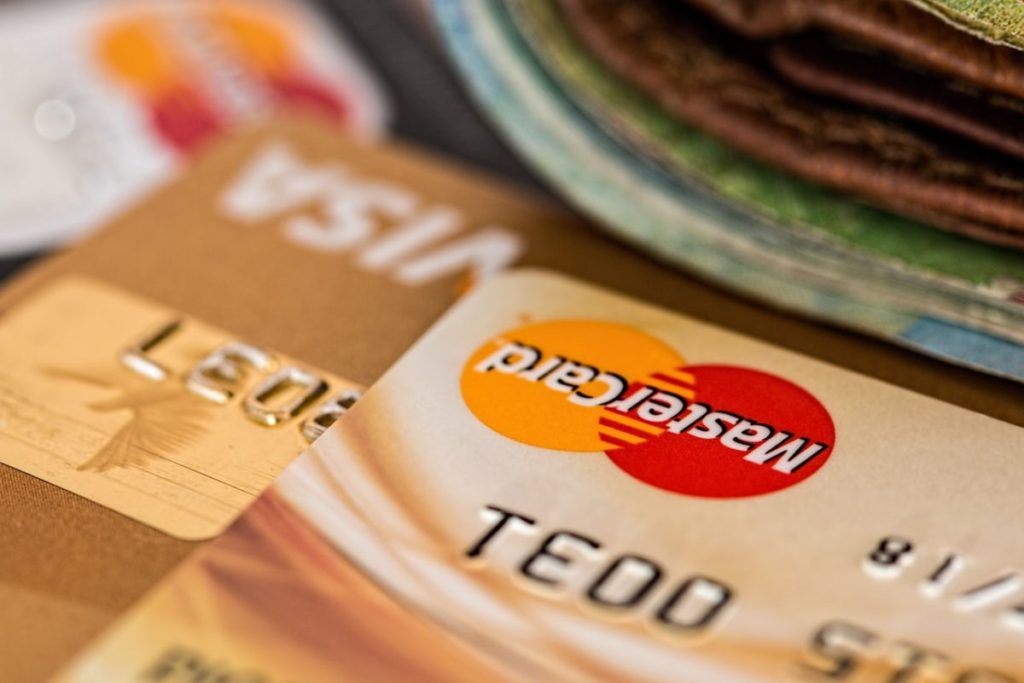
4. Pay More Than Your Minimum Payment
One surefire way to avoid credit card debt, though it can be tough, is to pay more than your minimum payment each month. Doing this means just what it says: you are doing the minimum work on your part to keep your credit card account in good standing.
However, it also means that the credit card company is making lots of money off of you. The longer it takes you to pay off your balance, the more interest you will pay on it. To show just how crazy interest payments can get, here’s an example from BB&T Bank:
“On a credit card with a $5,000 balance, 12% annual interest, and a 2% minimum monthly payment, it could take nearly 25 years to pay off the balance. However, if you commit to paying $250 a month, the debt will be eliminated in closer to 23 months.” (Mint)
This situation only gets worse when you keep buying things with your credit card each month, yet continue to pay the minimum payment. Aim to pay off your balance in full every month. If that just isn’t possible, pay as much as you can possibly afford to save yourself money in the future. This is how you really work towards becoming debt free.
Let’s get real.
If paying more than the minimum payment on your credit card feels tough month after month, it’s time to reevaluate your finances. This usually means you have bought too much on credit without having the real money to back it up. To avoid falling into the red, reduce your credit card expenditures ASAP. Are you paying for your bills on credit? Take a look at your budget and figure out what non-essential things you can cut to reduce your financial stress.
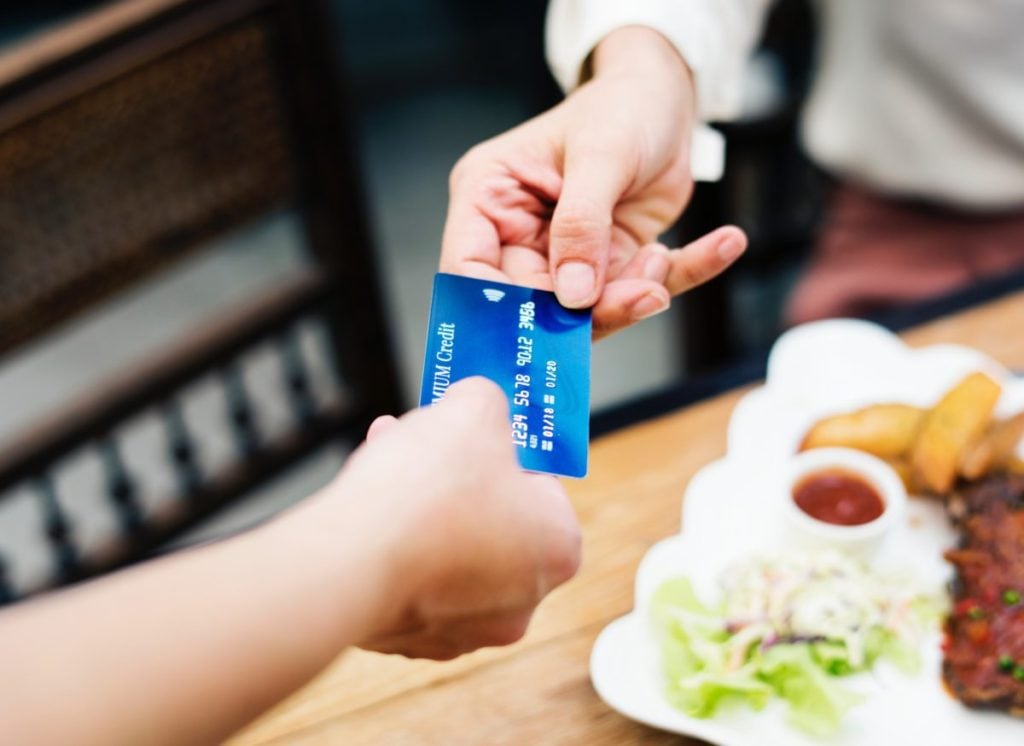
5. Watch Out For Fees and Interest
When it comes to credit card companies, fees and interest are where they make their money. Every time someone can’t pay their bill on time or in full, it’s cash in their pockets. The aim for you as a credit card user is to build your credit score while letting the company make as little money as possible off of you.
Interest rates can vary significantly from card to card, so take this into account when applying for a new one. The average annual rate is about 15 percent, but it can go all the way up to 20 or be as low as 12. Though a few percentage points might not seem like much, your interest rate can determine if you go into debt to pay off your card or not.
And don’t be fooled by low introductory interest rates! These will run out sometime, and you may be stuck with an insanely high percentage after. Avoid credit card debt for your future self by choosing a credit card with a lower interest rate from the get-go.
Another sneaky cost to watch out for when choosing a credit card is the annual fee. Most cards don’t have them, but premium credit cards that come with a list of fancy perks often do. While this may make you feel bougie, chances are the benefits won’t outweigh the cost of the annual fee.
Go through the list of perks (this usually includes increased rewards and travel upgrades) and calculate how much money you could realistically save with them versus the price of the annual fee. If you can afford the hundreds of dollars each year and will benefit from the extra rewards, go for it!
Need more help deciding if an annual fee credit card is right for you? Take a look at this video about the value of these types of cards by Trip Astute.
6. Make The Most Of Your Rewards
Credit card rewards cover just about everything you can dream up nowadays, so doing your research before choosing a card can help you avoid credit card debt later. Take a look at what you can earn by using the card and see if it has real value to you. For example, if you never travel, earning airline miles is kind of useless.
A cashback credit card is a great choice for just about everyone because it’s money you can use for anything you want, including paying off your card balance.
Before choosing a credit card, think about where you spend a lot of money. Then, look for a card that will give you free stuff or cashback in that category. Cards that reward gas and groceries are a good bet for most people, but a specialty card might have more value to you personally. Some retailers and even Disney have specialty cards that reward you at their establishments. If you go to those places a lot and spend a large chunk of your money there, those cards would be more beneficial for you.
While making the most of your credit card rewards might not actually help you dodge credit card debt, it can help save you money on things you would buy anyway. In turn, you can use those savings to pay your credit card bill. Plus, who doesn’t love free stuff?
Reducing your risk of falling into credit card debt is way easier than it seems at first.
The first step is being careful when choosing your card. Looking out for sneaky fees and crazy interest rates can save you loads of money later. Picking a rewards program with real value to you will also put some extra cashback in your pocket. Once you have a card, be a smart spender. Track what you buy to ensure you don’t spend more money than you have. And always make sure to pay your bill in full and on time!
Do you use any of these helpful tips? What is your best advice on how to avoid credit card debt? What’s the most unique credit card rewards program you have seen? Share with us how you became debt free in the comments below!
Resources
The Millennials Guide to Avoiding Credit Card Debt
Monthly Budget Tips for Avoiding Credit Card Debt

